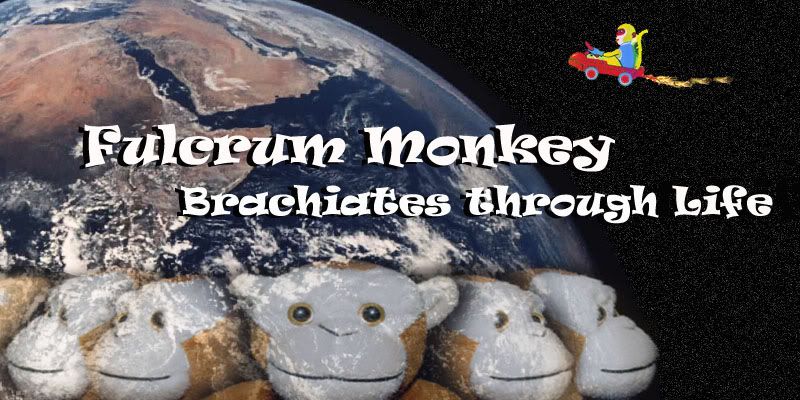In my left hand (when I am not typing) there is a gin and tonic. On my lap there is a cat, there was a cat, named Bozo. My pose of drink in hand cat on lap has been all messed up by this typing. Bozo just went to check on M.B. The pets are now snuggling with the more inert reader. This writing business is too busy. I will begin my day tomorrow with a cold nose from Sebastian, which will cause me to roll over onto Bozo. In pet world I am second shift.
Two days ago I took two frozen swordfish steaks out of the freezer and left them in the fridge to defrost. Tonight I drizzled them with olive oil and lemon juice, sea salt and cracked pepper, and I baked them at three hundred and fifty degrees in Pyrex until they looked almost done. Then I finished them up by pan searing them in cast iron. I know, you’re supposed to reverse that order to seal in the juices, but they turned out great all the same. Searing last can actually give you more control over texture.
I fixed a box of Uncle Ben’s wild rice and had Angela over for said meal. After dinner we went to the Tivoli and watched What The Bleep Do We Know. I cannot say that I would recommend the film. You might still want to see it though. It’s a film that will result in conversations that are far more interesting than the movie that provoked them.
If you’ve taken either a philosophy101 or a physics101 class in the last ten years I think you could safely skip it. If you’re enamered with psychology you should definitely go pop that balloon on one of the films many pins. Alternately, if you’ve been out of that loop on these topics it might be a good primer.
This is the part that will sound obnoxious to people who really liked the film – Angela and I both found the film to be both sophomoric and repetitive. Neither of us thought that the narrative portion of the film was effective, however, for people unfamiliar with contemporary physics and its implications for identity, addiction, conceptions of God, etc. I can imagine it might be fresher than either of us found it.
I did like the explination of the hypothalamus in the context of how emotion functions chemically and the analysis of the connection between negative thought patterns and aging. I just don’t buy the Messages from Water argument – sorry.
If you liked it, let me recommed a better film: Mindwalk. It pitches a little bit higher and is well worth multiple viewings.
Angela’s solid review quote, “I didn’t get anything out of the film that I hadn’t already gleaned from Harold and the Purple Crayon. We create our reality, got it.”
Excerpted from Roger Ebert's home page:
Q. Regarding your Answer Man item about "What the #$*! Do We Know" being a hoax perpetrated by the Ramtha School of Enlightenment: Did you or your readers go out and sign up for Ramtha's school? No, and neither did I. Instead I walked away absolutely astounded by the insights into my own life experience and the direction that I needed to go in order to affect my life in a positive way.
Whether the scientists in the film are "experts" or not (who defines these terms, anyway?), I found their insights and perspectives extremely helpful. The filmmakers encourage us to begin to understand the theory of quantum physics and start to ask ourselves questions that will lead us to a mindful life.
Kiara Lee, Berkeley, Calif.
A. I also received a sharply worded letter from Mark Vicente, Betsy Chasse and William Arntz, the co-directors, defending the stature of their experts and the integrity of the film.
"What the #$*@!" has turned into a sleeper hit around the country, drawing repeat audiences and generating strong word of mouth. I felt a certain affection for the film, although as my original review indicated, the "movie that attempts to explain quantum physics in terms anyone can understand. It succeeds, up to a point. I understood every single term. Only the explanation eluded me."
Among the experts on the screen, I wrote, "only one seemed to make perfect sense to me. This was a pretty, plumpish blond woman with clear blue eyes, who looked the camera straight in the eye, seemed wise and sane, and said that although the questions might be physical, the answers were likely to be metaphysical. Since we can't by definition understand life and the world, we might as well choose a useful way of pretending to."
This woman, I later learned, was the psychic JZ Knight, who channels a 35,000-year-old mystical sage from the lost continent of Atlantis. Still later, a letter to the Answer Man from an actual physicist, Rubin Safaya, informed me: "The individuals who are quoted are pretty far from qualified experts on the field of quantum mechanics."
The film is what it is, a group of people trying to explain the nature of reality. The confusion comes if you think they are discussing physics, when in fact they are discussing metaphysics. There is nothing wrong with having a belief system and using it to fashion your worldview; the error comes in ascribing scientific truth to what is by definition a matter of faith.
The argument between Darwinians and Creationists is similar: Darwinians use science, Creationists use faith. "Creationist science" is laughed at by reputable scientists because it tries to use its easily refuted "science" to explain a belief that grows from and depends entirely on faith. By the same token, although the Ramtha School may indeed have valuable insights into the nature of reality, it is misleading to present them as science.




0 Comments:
Post a Comment
<< Home